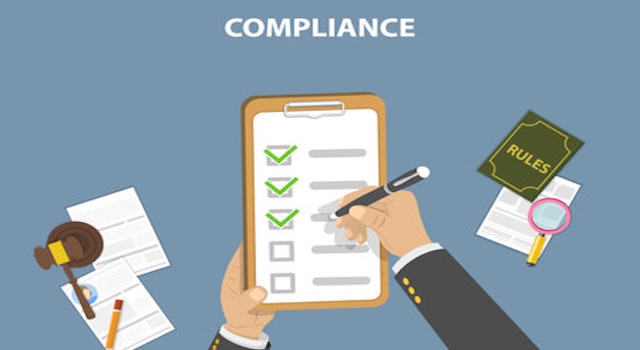Compliance (CaaS)
Nonprofit Management
Data Privacy & Donor Compliance: How Nonprofits Can Navigate GDPR, CCPA & International Laws Using Software

As nonprofits expand their digital reach, they collect more donor and supporter data than ever before. Names, emails, donation amounts, payment information, and even behavioral analytics now flow through fundraising platforms, CRMs, and marketing tools. This makes data privacy and compliance not just a legal obligation, but a key element of building donor trust.
With regulations such as the GDPR (General Data Protection Regulation) and CCPA (California Consumer Privacy Act) setting global standards for data protection, nonprofits must ensure their software systems meet these requirements — even if they operate outside the EU or California. Fortunately, modern nonprofit management software offers built-in features to automate compliance, minimize risk, and protect supporter information.
Why Data Privacy Compliance Matters for Nonprofits
Unlike commercial enterprises, nonprofits rely heavily on trust and transparency. Donors expect their data to be handled responsibly, and any breach or misuse can harm an organization’s reputation and funding opportunities. Compliance is no longer optional — it’s a key part of ethical stewardship.
- Legal Protection: Avoid costly penalties for non-compliance with international privacy laws.
- Trust Building: Demonstrate respect for donor privacy and transparency in how data is used.
- Operational Efficiency: Automate privacy processes such as consent tracking and deletion requests.
- Global Readiness: Prepare your organization for evolving data laws beyond GDPR and CCPA.
Key Regulations Affecting Nonprofits
Even if your nonprofit is based outside of Europe or California, these laws may still apply if you collect data from individuals in those regions:
- GDPR (European Union): Requires clear consent for data collection, transparency in data use, and the right to access or delete personal data.
- CCPA/CPRA (California): Gives California residents control over how their personal information is used and shared.
- UK Data Protection Act: Mirrors GDPR protections for organizations operating in or handling data from the UK.
- Other Regional Laws: Canada’s PIPEDA and Australia’s Privacy Act have similar requirements.
Nonprofits operating across borders need flexible, software-driven compliance solutions that adapt to multiple jurisdictions.
Software Features That Support Data Privacy Compliance
Modern nonprofit CRMs and fundraising platforms come equipped with compliance tools that reduce human error and simplify management of donor data rights.
- Consent Management: Automatically record when and how donors gave consent for communications or data storage.
- Data Minimization: Collect only the data necessary for specific purposes and securely delete unnecessary records.
- Access Controls: Use role-based permissions to restrict sensitive data to authorized staff.
- Encryption & Security: Store all donor information in encrypted databases, both in transit and at rest.
- Data Subject Requests (DSR): Automate processes for responding to donor requests for access, deletion, or correction of their data.
- Audit Trails: Maintain detailed records of when data was accessed, modified, or shared.
Top Privacy-Compliant Nonprofit Software Platforms
1. Salesforce Nonprofit Cloud
Salesforce Nonprofit Cloud offers extensive compliance configurations, including GDPR data handling settings, audit logging, and encryption options. It integrates with compliance apps like OneTrust and TrustArc for enhanced monitoring.
- Best for: Large, data-driven nonprofits
- Standout feature: Automated data subject access request (DSAR) workflows
2. Bloomerang
Bloomerang prioritizes donor trust with built-in consent fields, secure data storage, and compliance-ready data export tools. It also supports opt-in tracking for GDPR-compliant communications.
- Best for: Small to mid-sized nonprofits
- Standout feature: Simplified donor consent and retention dashboards
3. Blackbaud Raiser’s Edge NXT
Raiser’s Edge NXT offers compliance tools to manage donor consent, secure data transmission, and access controls. It includes full encryption, data export logs, and customizable retention policies.
- Best for: Established nonprofits with global operations
- Standout feature: End-to-end encryption and customizable data deletion schedules
4. Kindful (by Bloomerang)
Kindful provides transparency features for nonprofits to easily view, export, or delete donor data upon request. It’s ideal for organizations with growing international donor bases.
- Best for: Nonprofits seeking flexibility and transparency
- Standout feature: Donor self-service access and deletion request forms
Best Practices for Nonprofit Data Privacy
- Map Your Data: Identify where donor information is collected, stored, and shared across all systems.
- Establish Consent Protocols: Ensure every communication is based on explicit, recorded consent.
- Implement Role-Based Access: Restrict sensitive data to authorized personnel only.
- Document Everything: Maintain an audit trail of all privacy-related activities and requests.
- Regularly Train Staff: Educate your team on privacy principles, phishing awareness, and data handling policies.
Integrating Compliance Across Your Tech Stack
True compliance requires a unified approach. Your CRM, accounting, and email marketing systems must all align on data management and privacy protocols. API integrations and middleware tools like Zapier or MuleSoft can ensure consistent data handling across platforms.
- CRM Integration: Sync consent and donor data across fundraising and marketing tools.
- Accounting Systems: Protect donor payment and financial information with encrypted connections.
- Email Marketing: Use tools with GDPR-compliant unsubscribe and consent tracking (e.g., Mailchimp or HubSpot).
Emerging Trends in Nonprofit Data Compliance
- AI Compliance Tools: Artificial intelligence helps monitor and flag risky data-handling behaviors automatically.
- Privacy Dashboards for Donors: More CRMs now offer self-service portals where donors can view and manage their data preferences.
- Data Residency Controls: Nonprofits can now choose where their data is physically stored to meet regional regulations.
- Zero-Trust Security: Adopting “never trust, always verify” principles reduces the risk of internal breaches.
Final Thoughts
Data privacy isn’t just about compliance — it’s about demonstrating respect for the people who make your mission possible. By using privacy-focused nonprofit software and implementing smart data governance practices, your organization can maintain compliance with GDPR, CCPA, and beyond while building lasting trust with your donors.

